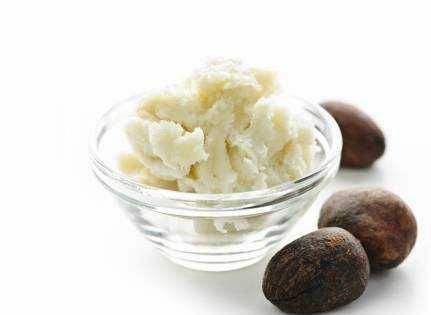The role of shea butter in cosmetics (2)
Second, the product ingredients

The main components of shea butter are triacetin (containing a certain amount of linoleic acid) and unsaponifiable matter, wherein the triglyceride content is about 80%, and the content of non-saponifiable matter is based on season, place of origin and extraction and refining methods. Different and different changes Henkel Corning uses a unique patented method to extract the shea butter, the unsaponifiable content of up to 9% to 13% (the highest level of unsaponifiable content in similar products).
The most valuable of the shea butter is its unsaponifiable fraction. The esters rich in shea butter have well-known wound healing and anti-inflammatory effects and the skin is well tolerant to these ingredients. Treatment of photosensitive dermatitis and sunburn. Some of the non-saponifiable materials have anti-ultraviolet properties, and the simple SPF has an SPF value of about 2%. Shea butter pressing and extraction equipment
In addition, the use of shea butter in sunscreen formulations can greatly increase the S PF value of the product due to synergy. For example, using 10% shea butter in the formulation can increase the SP F value of the product by 20%.
Third, function and application
Anti-aging effect
19 In 1990, Henkel made an anti-aging clinical trial with shea butter. A total of 30 volunteers aged 29-82 years participated in the experiment. The volunteers used a balm made from shea butter to massage once a day. After 4 to 8 months, all volunteers' skin improved to a large extent.
(1) After a few weeks of use, the grayish yellow rough skin becomes smooth and clean.
(2) The skin texture becomes very fine. Obvious skin renewal can be observed. It may be that the synthesis of collagen is promoted by the unsaponifiable matter in dry shea butter.
(3) Shea butter is an effective anti-aging active substance due to the obvious reduction of wrinkles caused by sun exposure.
2. Nursing and regeneration
Another clinical trial examined the effects of shea butter on dry, delicate and aged skin. A total of 49 volunteers participated in the experiment. Applying pure shea butter or a product containing 15% shea butter twice a day. Using both products, similar results were obtained:
(1) 70% of the volunteers found that the product has obvious healing effects on skin with dermatitis, sunburn and scars;
(2) 75 % of volunteers have significantly reduced wrinkles and the skin becomes plump. This demonstrates that shea butter has the function of promoting skin regeneration and preventing photoaging.
3. Moisturizing properties were applied to the side of the forearm of 10 volunteers by applying a cream containing 5% shea butter and a cream of the same matrix but no shea butter. The difference in conductivity. As a result, shea butter was found to have a short-term moisturizing function, and the moisturizing effect was maintained for 8 hours.
However, for all volunteers who use it once a day, shea butter has a good long-term moisturizing effect on the surface of the skin.
4. Anti-inflammatory effect
Shea butter is one of the traditional African medicines used to treat rheumatism. It has a good anti-inflammatory effect.
5. Promote the release of active substances
Shea butter protects the skin from harsh climatic and UV rays and prevents the formation of wrinkles. Soothes the epidermis to promote the effective release of polar actives. Shea butter contains both unsaponifiable anti-U VB and Moisturizing fatty acid triglyceride.
Therefore it is an active ingredient for cosmetics. Due to its spreadability and transdermal absorbability, it is particularly suitable for use in non-greasy formulations.
Fourth, formula application
Shea butter is suitable for a variety of cosmetic formulations: 3% to 15% of skin care products, suitable for anti-aging products, night creams, sensitive skin and dry skin care products, winter products, protective creams, foot protection Cream, body lotion, baby products, after-sales products; sunscreen products use 3%~25%.
Suitable for sunscreen products and after-sun care products Make-up products: 2%~10%, suitable for lipstick and foundation honey; hair products: 1%~3% Suitable for dry hair, shampoo and conditioner, Hair care products after dyeing.